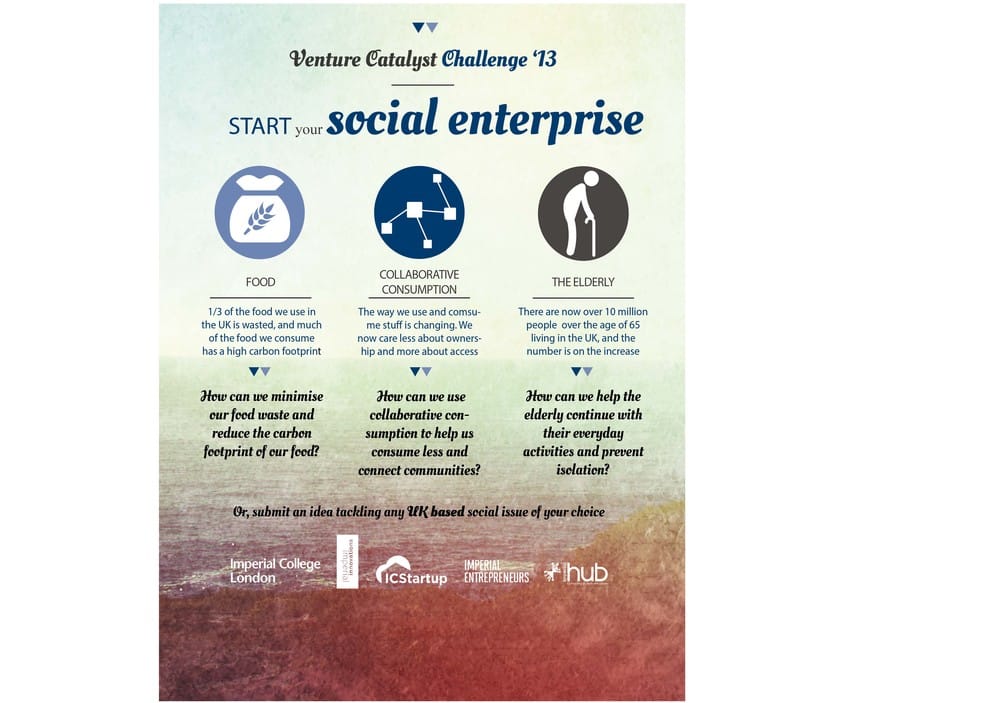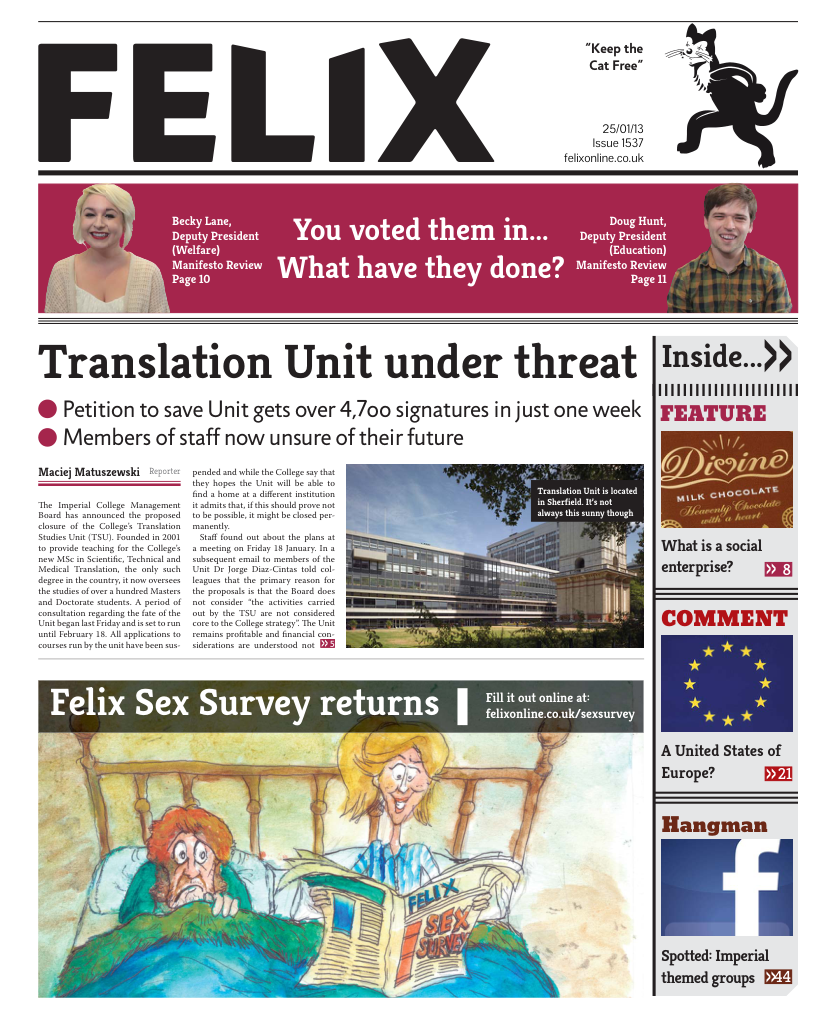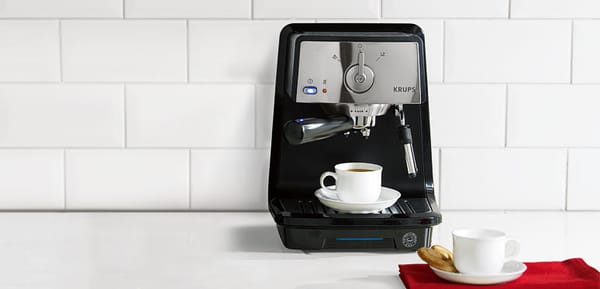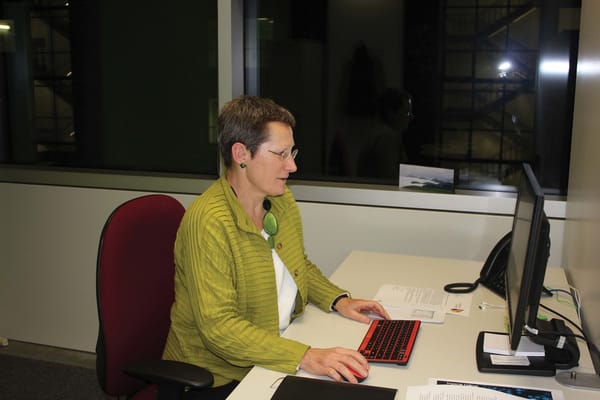What’s the link between Jamie Oliver, London’s gyms and Divine Chocolate?
Hint: It’s not nakedness. (Though that could work too... sort of...) Caroline Wood introduces you to the world of Social Enterprise
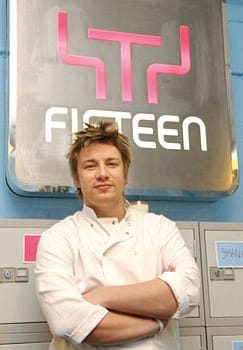
The term “social enterprise” was first coined during the late 70s. The idea is simple. A social enterprise is a business where social aims come first, and profit comes second. Yes, you read that right – social aim first, profit second. Social entrepreneurs are business minded people who are a little bit warm and fuzzy around the edge. Think Alan Sugar meets Mother Theresa, or Donald Trump meets Florence Nightingale. It’s all about business acumen being applied to doing good.

Social enterprises have been popping up all over the place since the start of the new millennium. They are a growing trend that’s showing no sign of slowing, and for good reason. Since social enterprises generate their own income, and don’t rely on grants or donations (like charities do), they are often hailed as a more sustainable mechanism for social change. This means that when times get tough (hello ‘financial crisis’) and charities suffer from lowered levels of funding, a social enterprise can retain the ability to keep on solving social issues.

There a loads of social enterprises around. You probably think of many as just normal businesses rather than social projects. Take Jamie Oliver’s restaurant Fifteen, for example. Here, unemployed young people are trained as chefs and are thereby given the chance to have a better future. Another good example is The Big Issue, where homeless people are given the opportunity to take some control of their lives and to re-join mainstream society by selling a magazine.
There are so many different kinds of social enterprises, set up by different people for different reasons. Teach First, Divine Chocolate and The Good Gym are three different examples.
Teach First
Everyone has heard of TeachFirst. They have an innovative business model where they entice bright graduates to tackle educational disadvantage by teaching in schools for two years or more. Once they have completed the scheme, graduates choose whether to continue teaching, assume positions within government or industry or even work on their own social enterprises.
It was set up by an ex McKinsey employee. Brett Wigdortz took a planned six-month leave of absence from McKinsey to develop a business plan for Teach First. He had no experience of either public policy or teaching when he started and had never managed anyone. Teach First is a great example of how anyone with a great idea, some basic business knowledge and true dedication can make a real positive difference.
Divine Chocolate
Or otherwise known as that really nice chocolate in the Library café for days when a bar of Dairy Milk just can’t cut it.
The Divine chocolate shop gives coaco farmers a fair-trade price and 45% ownership of the company. It was founded as a partnership between the Kuapa Kokoo cocoa growers’ collective and the alternative trading organization Twin Trading. It means that the Kuapa Kokoo cocoa growers have a say about how the company is run resulting in fair working conditions and an authentic respect of local traditions. It also sells yummy chocolate of course.
The Good Gym
A lesser-known social enterprise is the GoodGym. Operating in East London, they take exercise out of the gym and make it useful. In their words “gyms purposefully waste energy. There are many neglected tasks, and people in our communities that need that energy.” For example, in order to tackle loneliness amongst older people, GoodGym members adopt an elderly person as their coach and run to their house to deliver a newspaper, or some fruit. Pretty neat, huh?
It was set up by Ivo Gormley, a Clore Social Leadership fellow and documentary film-maker and seems as though it’s growing in popularity across the big smoke.
Your turn?
So as you can see, there are loads of great social enterprises around. But what about student-run social enterprises? There are a few initiatives run by students, E.quinox is a brilliant example of a student led social enterprise at Imperial. However, shouldn’t there be more? After all universities are full of bright, creative people wanting to involve themselves in interesting extra curricular projects. Social enterprises should be bursting out of the seems of our campuses. So why aren’t they?
Last Friday Imperial Hub met up with Year Here (another Social Enterprise challenging gap year students to spend a “year here” in the UK tackling social issues in their own backyard) to consider this exact question.
One interesting point raised was around failure. University teaches us to fear failure. As students, we are constantly trying to avoid failing our exams, lab reports and/or projects. However, in real life, and especially in the field of entrepreneurship, failure is essential to learning, refining and then improving.
Failure is conducive to good ideas and the term “fail fast” is a rapidly spreading piece of wisdom for budding entrepreneurs. We talked about how opening up a space where failing is OK, and even encouraged, could help students be more experimental, adventurous and ultimately more creative in their social entrepreneurship initiatives.
Another challenge discussed was the anxiety of choosing a risky career path as an entrepreneur whilst friends are securing jobs on well respected graduate schemes. In fact most large companies now either actively support young entrepreneurs, or at least perceive entrepreneurship as a desirable trait. Being involved in a social enterprise at university doesn’t necessarily tie you to a career path in entrepreneurship and more likely than not is likely to aid your application to any job! The key message here is that social enterprise at university is not just something that those wanting to ‘become entrepreneurs’ should explore. It can be fun, interesting and rewarding for everyone.
The Venture Catalyst Challenge ‘13
University is a great time to get involved in new projects and experiment with things that may be outside of your comfort zone. Maybe you can’t fail your degree, but you can certainly try to learn a new sport, a new language or join a new society with absolutely no pressure to be good at it. Trying to start your own social enterprise should be no different.
That’s why this year ICStartup (a collaboration between Imperial Hub, Imperial Innovations and Imperial Entrepreneurs) is bringing you the Venture Catalyst Challenge, your chance to develop an enterprise idea. This year the focus is on digital and social enterprise. It’s offering students the chance to win anything from £500 to £250K to develop their idea, as well as providing expert support and advice via free workshops and masterclasses.
Imperial Hub is responsible for the social enterprise aspect of the competition. Entrants are encouraged to submit an idea for any UK based social enterprise and to be as creative as possible. However, Imperial Hub has highlighted three social issues in the following areas that may help spark your imagination.
- Food
- Consumption
- The Elderly
(See poster (below) formore details.)
All you need to do is submit an idea bythe 28th January to www.icstartup.com/vc and then ICStartup will help you develop it! What are you waiting for?
